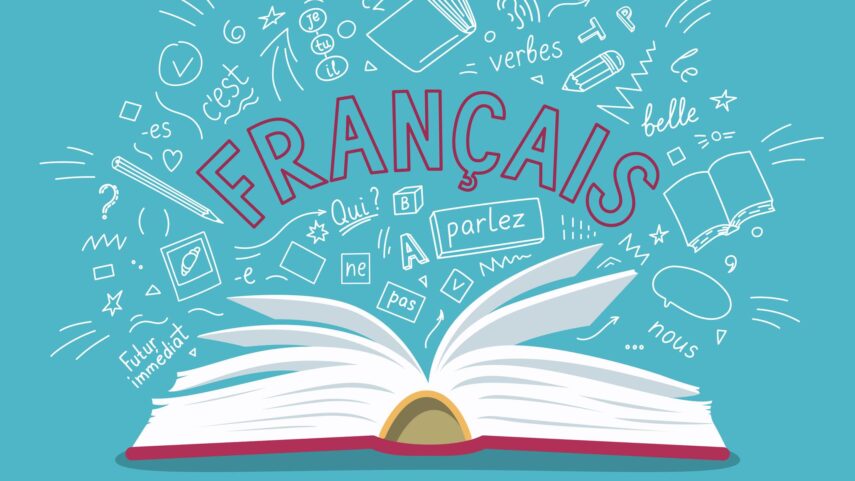Embarking on the journey to master a new language? Equip yourself with the right strategies to navigate this beautiful, intricate language. In this comprehensive guide, we explore effective methods for vocabulary building, grammar mastery, and improved pronunciation, reading, writing, and conversational skills. Let’s unlock your potential to become a proficient French speaker. You will need a proper tutor down the line so visit italki.com.
Immersion Techniques

Immerse, but with a strategy in mind – Becoming fluent in French, like any other language, is not a process that unfolds overnight. Many language learners believe the myth that pure immersion, physically being in a French-speaking country, will miraculously lead to fluency. While this method does contribute to linguistic growth, a structured approach amplifies its effectiveness. Start by identifying environments within your vicinity, such as local community groups, themed festivals, or French restaurants. By utilizing these settings, you expose yourself to authentic language usage in different contexts.
Digital immersion for the tech-savvy – With the digital era upon us, the physical borders restricting access to foreign languages are a thing of the past. Numerous online platforms provide digital immersion experiences, effectively mimicking the advantages of being in a Francophone country. Examples include films, music, podcasts, news, and even social media channels. By integrating French content into your daily life, you are naturally propelled to decipher the language, interpret cultural cues, and ultimately gain a deeper understanding of the language.
Building Vocabulary

Regular vocab enhancement – Unraveling the mystery of French vocabulary involves a commitment to consistent and strategic learning. This means moving beyond the usual memorization and repetition tactics. Get your hands on a thematic French dictionary and dedicate time to learning words grouped by subject. This method proves beneficial as it not only helps you retain information through association, but also familiarizes you with the context in which these words are used.
Contextual learning approach – Remember, words are the building blocks of language. To take your French to new heights, you must also learn to appreciate the nuance and connotation attached to vocabulary, which can only come through contextual learning. For this, reading literature, newspapers, or blogs can be incredibly fruitful. Similarly, watching films or series allows you to hear words used in a real-world context, strengthening your understanding and memory recall.
Grammar Fundamentals
Grasping the grammar blueprint – French grammar, while intricate, is quite logical. To truly master the language, you must comprehend the structure that frames it – the grammar. From verb conjugations to sentence structure, each element holds a pivotal role. Begin with basics like gender (masculine and feminine), verb tenses, and noun-adjective agreement. Learning in a structured, gradual manner allows the foundations of grammar to sink in and becomes second nature.
Subtle nuances and exceptions – The true beauty of French lies in its subtleties and exceptions, which might initially seem like an uphill task to grasp. This is where online resources come in handy, offering interactive lessons and exercises to reinforce your understanding. Don’t shy away from tackling seemingly complex aspects like subjunctive mood, indirect speech, or relative pronouns. Remember, persistence in mastering these nuances will give your French fluency an authentic edge.
Perfecting Pronunciation

The melody of pronunciation – In the journey of learning French, pronunciation plays a critical role, as it heavily contributes to the overall ‘sound’ of the language. French pronunciation encompasses several unique sounds that are not present in English, making them a tad tricky to master. Start by learning the French alphabet and associated sounds, focusing on the peculiarities of nasal vowels, silent letters, and accents.
Tools to sharpen your pronunciation – Thankfully, there are numerous aids available to hone your pronunciation skills. Interactive language apps offer pronunciation guides, while online platforms like YouTube have countless tutorials focusing on specific sounds. Do not underestimate the power of repeating after native speakers, either in person or through audio resources. This kind of mimicry, or shadowing, can significantly improve your pronunciation and rhythm.
Listening Comprehension
Crafting your auditory understanding – Developing listening comprehension requires patience and consistent effort. It is vital to train your ears to the varying speeds, accents, and colloquialisms in spoken language. Begin with slow-paced audio resources, such as language learning apps or beginner-level podcasts. This practice lets you familiarize yourself with the sounds and rhythm of spoken French without feeling overwhelmed.
Progressive elevation – As you grow comfortable, gradually expose yourself to more complex audio resources. These could include French radio broadcasts, movies, or advanced-level podcasts. Don’t worry if you don’t understand everything; the goal is to gradually get your ears accustomed to different accents and speech speeds. Remember, transcription tools and subtitles can always aid you in your journey.
Reading Strategies

Inculcating the reading habit – Reading in French is an indispensable way to consolidate your language skills, as it bolsters vocabulary, grammar, and cultural understanding. Start with simpler material like children’s books or graded readers. These are specifically designed for language learners and gradually increase in complexity, making them the perfect stepping stone.
Broadening your reading scope – As you gain confidence, transition to more sophisticated material like novels, newspapers, or academic articles. The diversity of these resources exposes you to varied vocabulary, idiomatic expressions, and complex sentence structures. Make it a habit to highlight unfamiliar words or phrases, later looking them up and incorporating them into your vocabulary.
Writing Techniques

Initiating the writing journey – Writing reinforces what you’ve learned and allows you to express yourself creatively. To kick-start your writing, begin by penning down simple sentences or paragraphs about your daily routine or experiences. Making mistakes is a part of the process, so don’t be discouraged. Instead, see each mistake as an opportunity to improve.
Evolving your writing style – Once you feel comfortable, start experimenting with different writing styles. Write letters, emails, essays, or even try your hand at storytelling. Consider using language exchange platforms, where native French speakers can provide valuable feedback on your writing. Alternatively, writing a blog or diary in French can be an exciting way to track your progress and apply your learning in a meaningful context.
Conversation Practice
Jump-start your conversational skills – Speaking is the culmination of all language skills, and practicing it requires courage. Don’t wait for perfection; start conversing from day one, even if it’s just a few phrases. Language exchange platforms offer an excellent way to practice speaking with native or advanced speakers. In this setting, mistakes are not only expected but welcomed as learning opportunities.
Confidence is key – As you progress, make an effort to engage in more complex discussions. This will not only refine your spoken French but will also boost your confidence. Join local language meetups or discussion groups to practice a wide range of topics. Remember, the key to becoming fluent is staying patient with yourself and enjoying the process.
Summary: Tu peux le faire!

Mastering French is a journey that involves persistence, patience, and consistent practice. While the path may seem daunting, the reward of becoming proficient in this beautiful language is unparalleled. With the right strategies and resources, anyone can overcome challenges and relish the thrill of understanding and expressing oneself. Just remember, it’s not about the destination but the journey. Bonne chance!!







